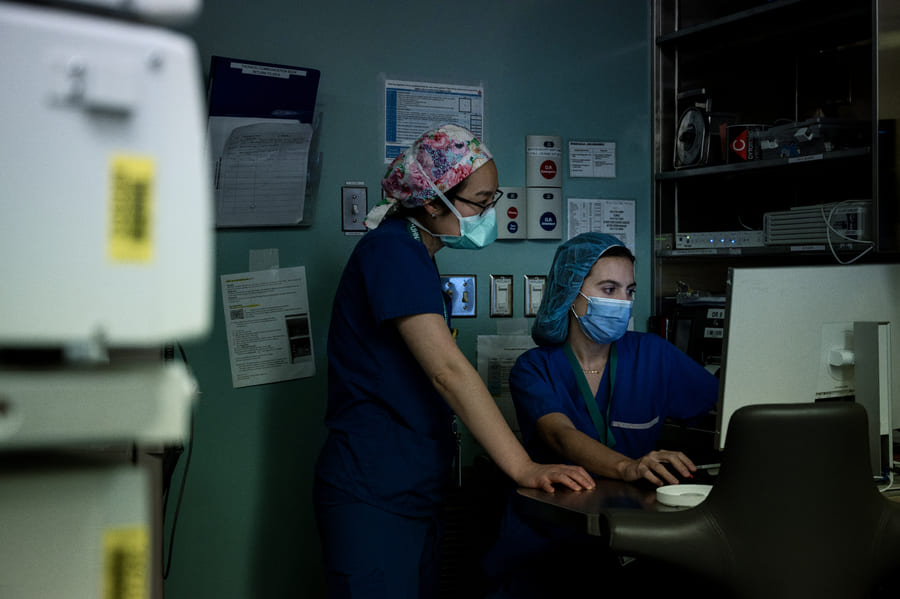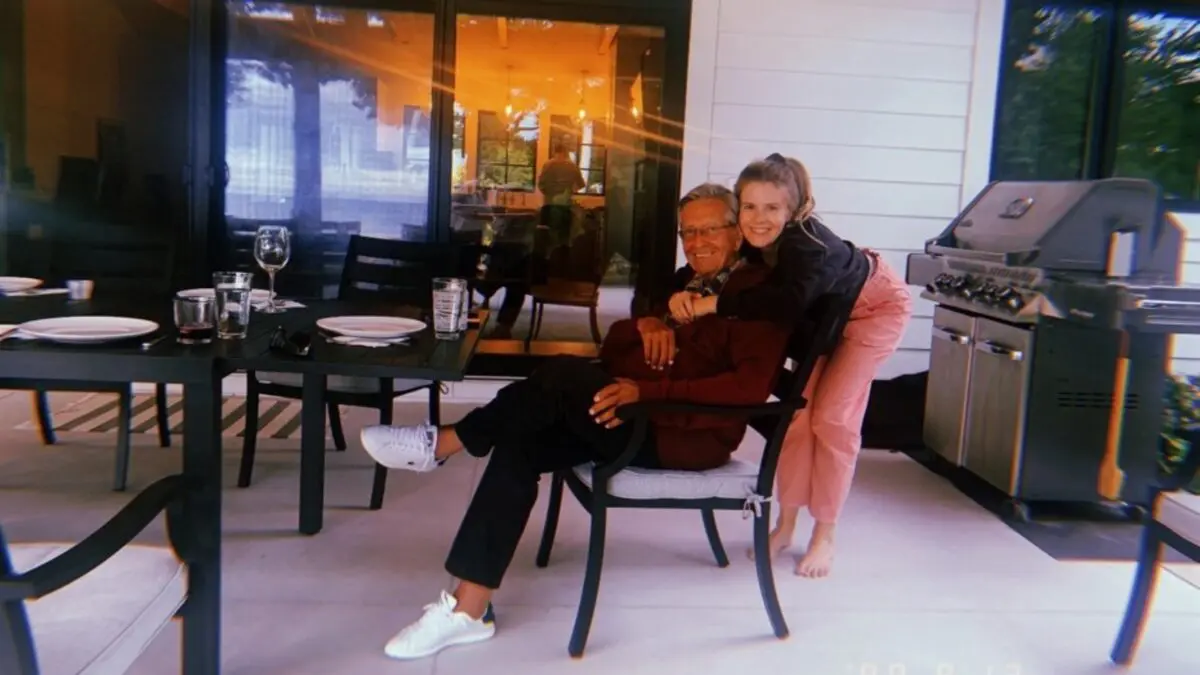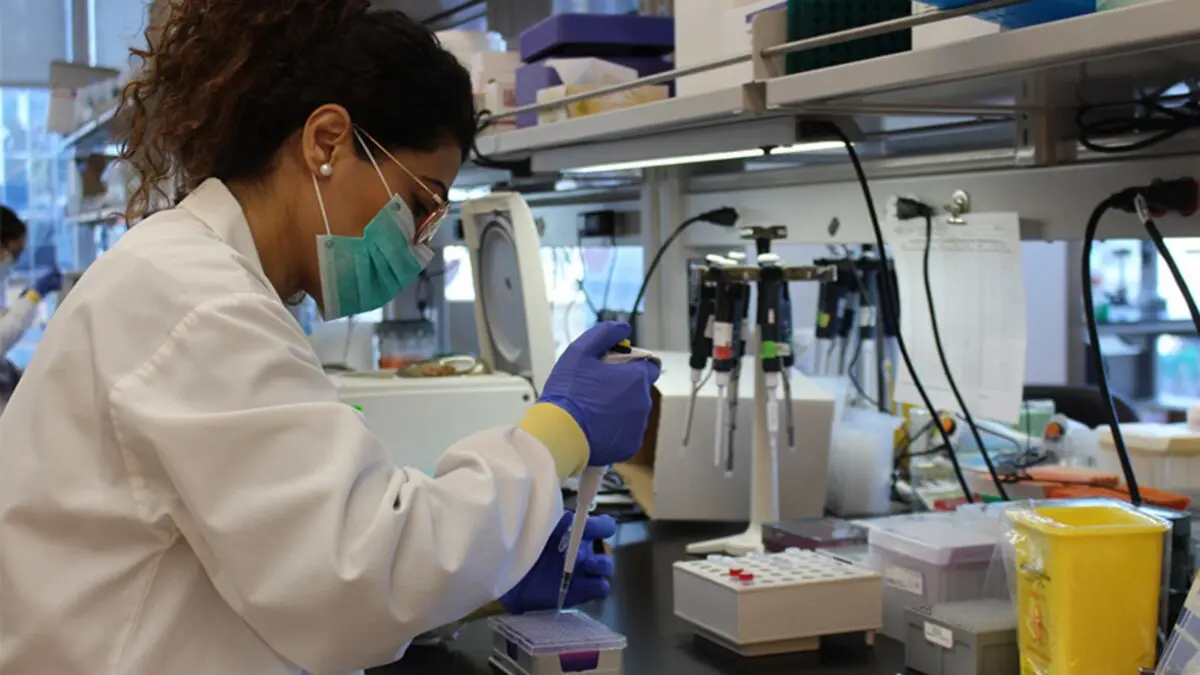Bill Coleman (R) is one of the lung transplant recipients that David Roberts has met in the past few years. David gifted Bill a hat that reads “this body runs on spare parts.” (Photo: Courtesy David Roberts)
Three years have passed since David Roberts got a new lease on life.
A retired teacher from Atlantic Canada, David inspired many with his journey in 2018 as he got back to the sports he loves just five months after receiving a double-lung transplant at the Toronto Lung Transplant Program, part of University Health Network’s Ajmera Transplant Centre.
His story got media attention, and David started receiving calls from other patients waiting for a lung transplant. Inspired by these conversations, he decided to start a patient-to-patient support and mentorship program.
“You would be amazed at what a simple phone call means to someone who’s about to start their transplant journey,” says David, who has met more than 70 fellow lung transplant patients either in person or virtually. Most are from Atlantic Canada and recipients with UHN.
David says the Toronto Lung Transplant Program at UHN is “second to none” in the world, with an incredible team of experts in the field of lung transplantation. But he believes there is an important gap to bridge when it comes to shared experiences among recipients.
“I’m always very cautions not to give any medical or healthcare advice, since that is not my expertise,” he says.
“But I have found that many of these people just want to hear from someone who has lived through the process.”
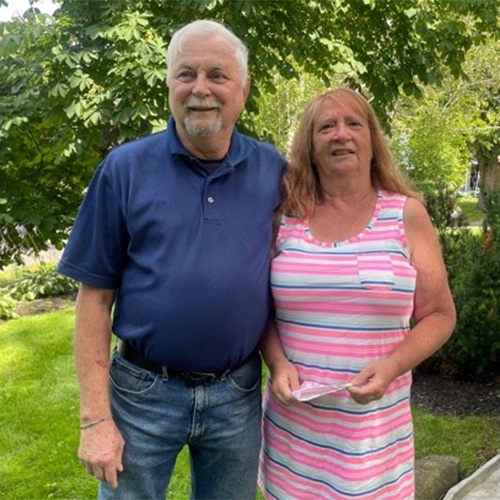
One of the people David has met is Bill Coleman. Just like David, Bill lives in New Brunswick and was diagnosed with pulmonary fibrosis – a deadly disease where scar tissue progressively accumulates in the lungs compromising one’s capacity to breathe.
Bill met David through a common friend in Fredericton, N.B. They were able to connect before and after Bill’s transplant surgery, which took place this year, in February.
“Transplant is a journey no one is expecting to take in life,” Bill says.
“No matter how amazing the medical team is, they can’t know what it feels like.”
For Bill, the conversations with David were invaluable, from practical tips around nutrition and physical preparation for his transplant, to peer support to get through a difficult journey. Bill’s journey included navigating the referral system from New Brunswick to the Toronto Lung Transplant Program in Ontario, and the ups and downs that are common after transplant.
“My journey has been a roller coaster, and having David’s support was certainly key to help me continue moving forward,” he says.
David and Bill became good friends. Their families got together this summer after being fully vaccinated. On that occasion, David presented Bill with his lucky hat, which reads “this body runs on spare parts.”
Impactful support
Patient-to-patient connections can play a big role in supporting patients through a number of health conditions, and that is particularly true in transplant.
Dr. Shaf Keshavjee, Director of the Lung Transplant Program, and David’s surgeon three years ago, says he is happy to see patients making connections through their transplant journeys.
Dr. Cecilia Chaparro, Medical Director of the Lung Transplant Program, and Bill’s physician, says this type of support is critical for positive outcomes.
“We know from our practice and from medical literature that having adequate support from family and from other patients who have lived experience makes a difference,” says Dr. Chaparro.
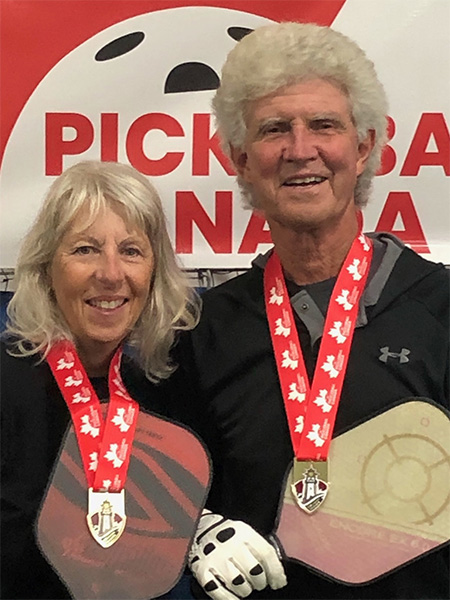
“Transplant is a journey like no other, as patients must prepare to receive the new organ and adapt to lifelong immunosuppressing therapies.
“Having a good support system is critical to get them through this journey,” says Dr. Keshavjee.
As for David, he says it is very rewarding to connect with other transplant recipients and feel he was able to help them adapt to life after receiving a new organ.
“I learn something new from every person I meet, and I try to pass it along,” he says. “It has been a real gift, in my mind, to have met each of them.”
David continues to enjoy life post-transplant with his family, taking the best possible care of his lungs – extremely thankful to his donor and appreciative of all organ donors and their families who make transplant possible.
Now 69 years old, he continues to play hockey and pickleball regularly. He looks forward to participating in the Kamloops Senior Games 2022, in B.C., where he will join the 70+ Hockey team.

